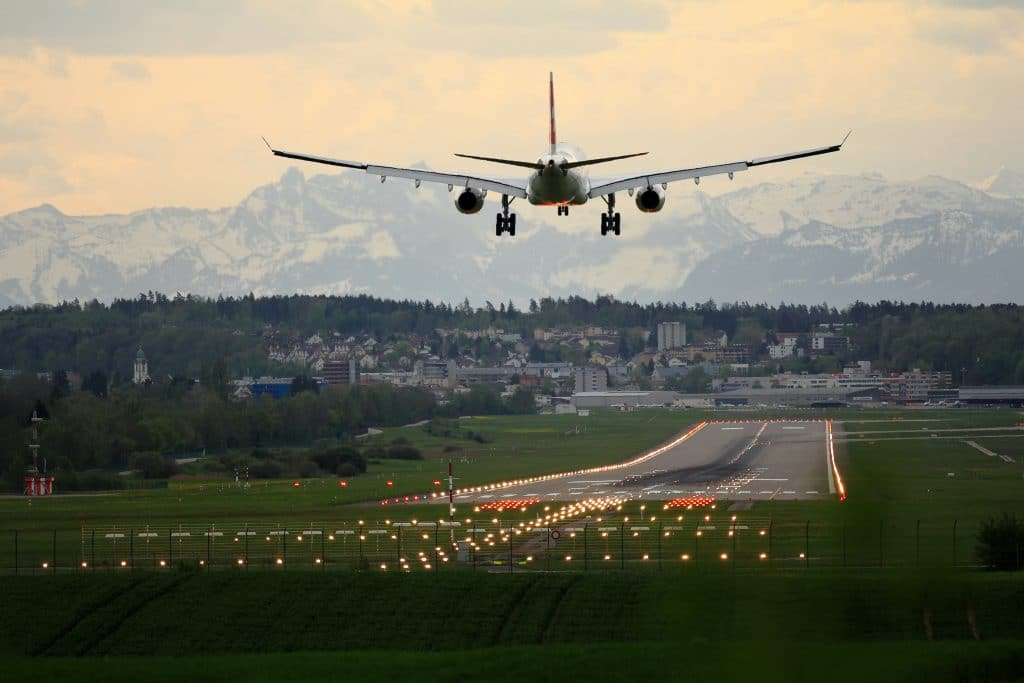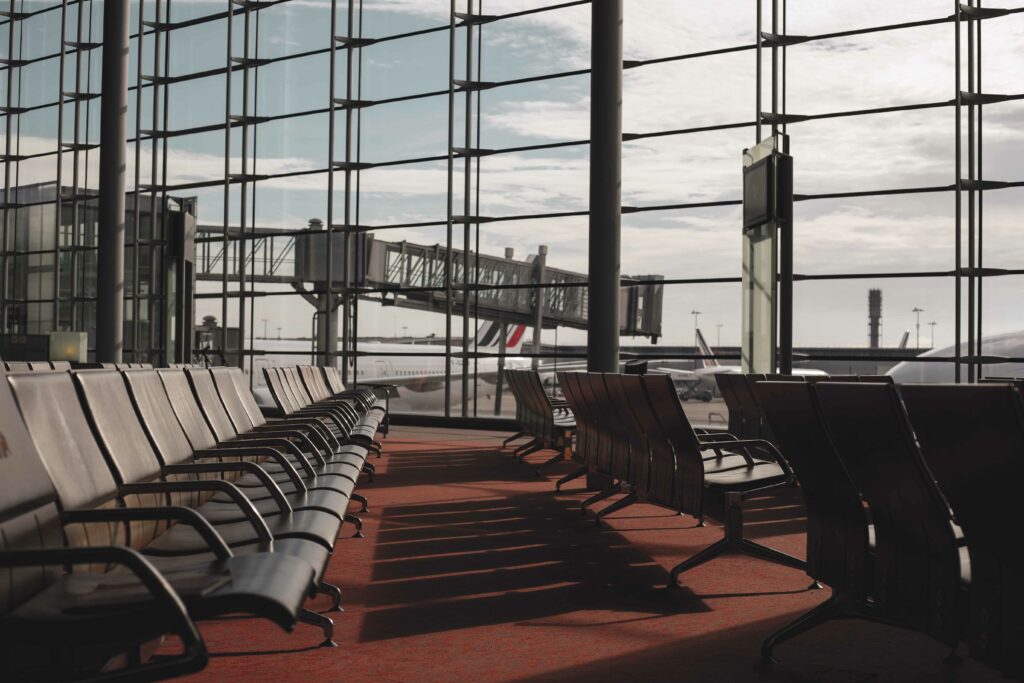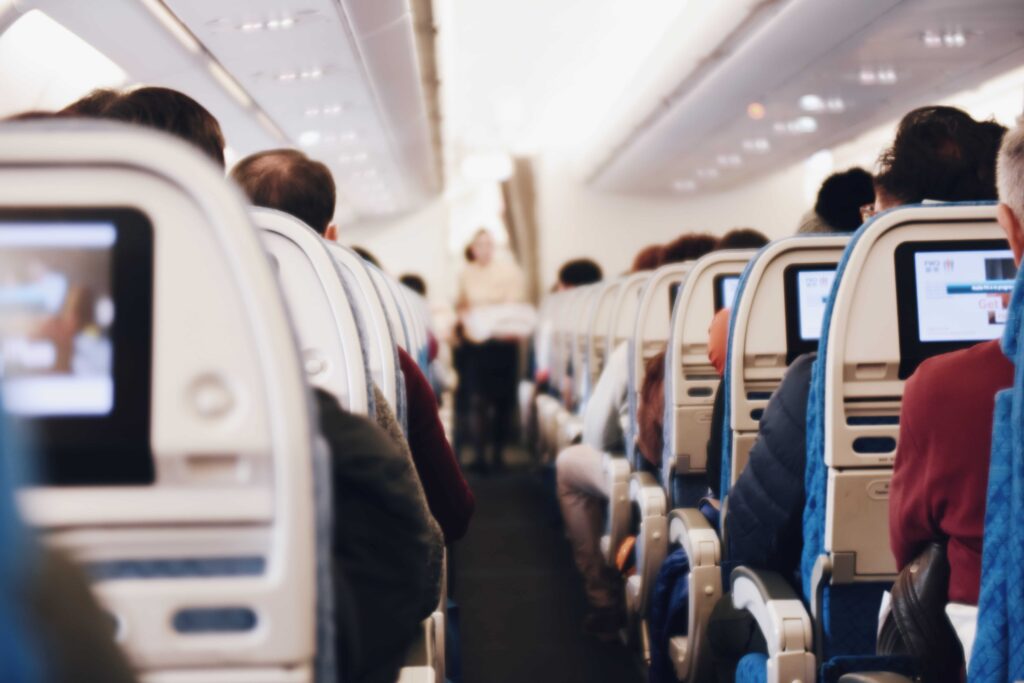Airports: The missing Link between Aviation and its Decarbonisation
In this opinion piece Andrew Murphy, Aviation Director at Transport & Environment, reflects on how airports can be transformed into allies in our efforts to drive the decarbonisation of the aviation sector.
This opinion piece by Andrew Murphy, Aviation Director at Transport & Environment, originally appeared in the European Transport Regulation Observer ‘The Role of Airports in the European Green Deal‘ (January 2021).
Airports and aviation’s climate impact are synonymous with each other. Climate activists hold up planned airport expansion as an example of our shared unseriousness in efforts to address the threat of a rapidly warming planet. There is a truth to this accusation: if we build the runways and terminals, more aircraft will land. And right now, these aircraft remain almost exclusively dependent on fossil fuels. This means that airports indirectly contribute to global warming. Campaigners are therefore right to oppose airport expansion, and even to call for some oversubsidied airports to close.
But it’s not just climate change campaigners who have a right to be worried. All of those who want our world to be better connected should be concerned about the aviation sector’s direction of travel. While other sectors such as electricity and road transport accelerate their decarbonisation, the aviation sector risks being left behind. At a time when sustainability is becoming the driving factor in a company’s resilience, aviation needs to act now lest it quickly becomes fossilised.
Airports will be especially exposed to climate change and its politics in the years to come, for they are the most unmovable aviation assets. Unlike aircraft, airports cannot be moved to regions where the warming or flooding effects of climate change are less acute, or where the regulatory environment is more favourable.
This, however, can turn airports into allies in our efforts to drive decarbonisation in the sector. To play that role, airports need to act on two fronts: first, not worsen the problem; second, start delivering new solutions.
The first front requires governments and airports themselves to accept that, at least in developed countries, a temporary halt to airport expansion is necessary. Don’t worry: a temporary halt need not mean permanent blocking. As the UK’s Committee on Climate Change recently recommended, ‘There should be no net expansion of UK airport capacity unless the sector is on track to sufficiently outperform its net emissions trajectory and can accommodate the additional demand.’ The focus should be on decarbonising the sector now, rather than let the problem snowball. Once decarbonisation has taken off and aviation has caught up with other sectors, airport expansion can again be considered.
The second front requires airports to play a lead role in reducing the aviation sector’s emissions. That goes beyond decarbonising their own activities, such as vehicle ground fleet and terminal energy consumption. Instead, airports need to be more proactive in deploying technology which can help decarbonise the full scope of aviation emissions. At present, the most viable pathway is alternative aviation fuel, such as synthetic kerosene derived from additional renewable electricity and CO2 captured from the atmosphere. There is one caveat in this alternative fuel pathway: it is essential that airports only support these new fuels, and don’t give any support to the sort of crop-based biofuels which compete with the planet’s food and forestry needs.
What is the role for regulators in all of this, be they EU-level or national? First and foremost, there should be a recognition that the approach to date, i.e., leaving aviation emissions largely unregulated, has done the sector a disservice. International aviation emissions have been excluded from national climate plans, which is inconsistent with the economy-wide targets of the Paris Agreement. This ineffective position urgently needs to be toppled, as some are already demanding.
Excluding international aviation emissions from climate targets may provide short-term relief from taking meaningful action, but has allowed our planet’s long-term climate problem to build up. All of us are already paying a hefty price for the aviation sector’s marriage of interest with passive governments. Both have swept aviation’s burning climate problem under the carpet.
Paris Agreement targets, known as nationally determined contributions (NDCs), should include all aviation emissions based on fuel sales. That is the start of a more aggressive programme of support to help the sector decarbonise. The programme needs to be combative because the sector needs to urgently step up its decarbonisation game. Both regulators and the sector need to adopt a “big bang” approach and to develop an ambitious industrial policy.
What would such an industrial policy look like? It would of course contain funding for research and development, but more than that, it would be a set of policies which would involve clear targets and timelines for new technologies to be developed and deployed. It would also include end dates for the use of fossil fuel in the sector, starting with the shortest journeys. These policies should be established at European and national level.
Airports have a central role to play in supporting this game-changing policy shift, for they are the missing link between the aviation sector and its clean future.







